
5 minute read
Our Rehabilitation Service
Our specialist rehabilitation service provides:
Low vision assessments
Specialist equipment to assist with independence
Mobility and independent living skills training and advice As the lockdown restricted home visits, our Rehabilitation team carried out assessments through phone calls or online communication. Rehabilitation Officers discussed the difficulties veterans were experiencing, and provided advice, equipment and training to best suit their needs. Outdoor mobility training was one service we provided, and it included long cane training. This enabled veterans to walk outdoors independently and safely, building their confidence and motivation. In one case, a veteran we supported began walking to his local shop to buy a newspaper. Using a new electronic magnifier we arranged for him, he was able to read the newspaper as well. This veteran told his Rehabilitation Officer that being mobile had hugely lifted his mood, and he enjoyed being able to walk and read independently again. When restrictions permitted it, our Rehabilitation team visited and supported veterans at their homes, following Scottish Government advice.
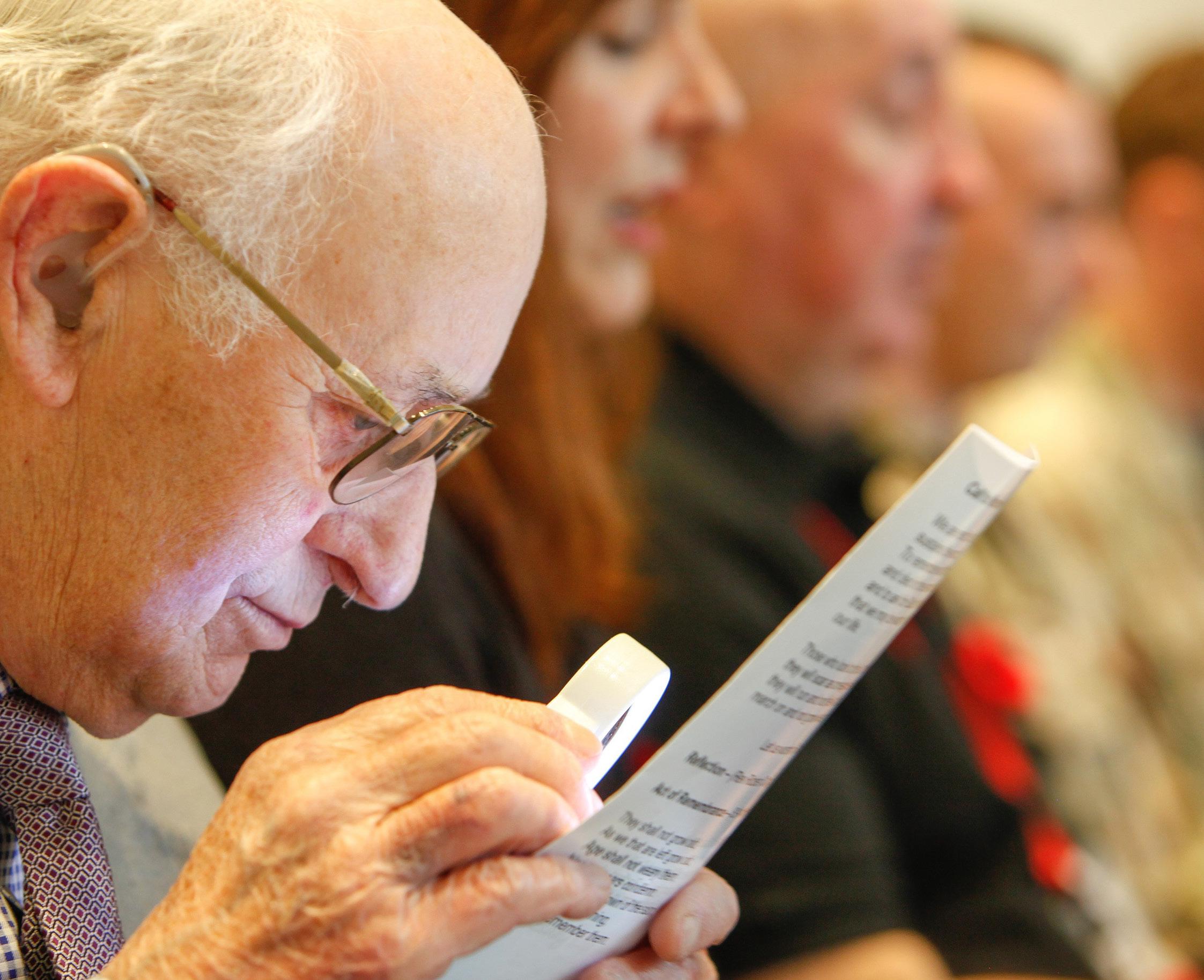
New telephone group for people who experience Charles Bonnet Syndrome
Veterans like Marjorie Ramage say a telephone support group set up by our Rehabilitation team during lockdown has been wonderful. Marjorie experiences Charles Bonnet Syndrome, which causes visions and silent hallucinations. The visions can be benign, such as patterns or flowers, but sometimes the visions can appear more sinister. People suffering from Charles Bonnet Syndrome have reported visions of unknown people in Victorian outfits, bedraggled children, or worse. Marjorie said: “The hallucination I sometimes see is an old man. To begin with, I was worried sick as to why I kept seeing it. “I could be sitting on a moving bus and look out and see him walking among the people. In bed one night I looked up and he was just stood there looking at me. I didn’t like that at all.” Marjorie said the man in her visions always wore similar clothes to those her grandfather used to wear. “My grandfather always used to have his white shirt with no collar on with a black waistcoat, black trousers, and a pinafore because he was a gardener.
Marjorie Ramage
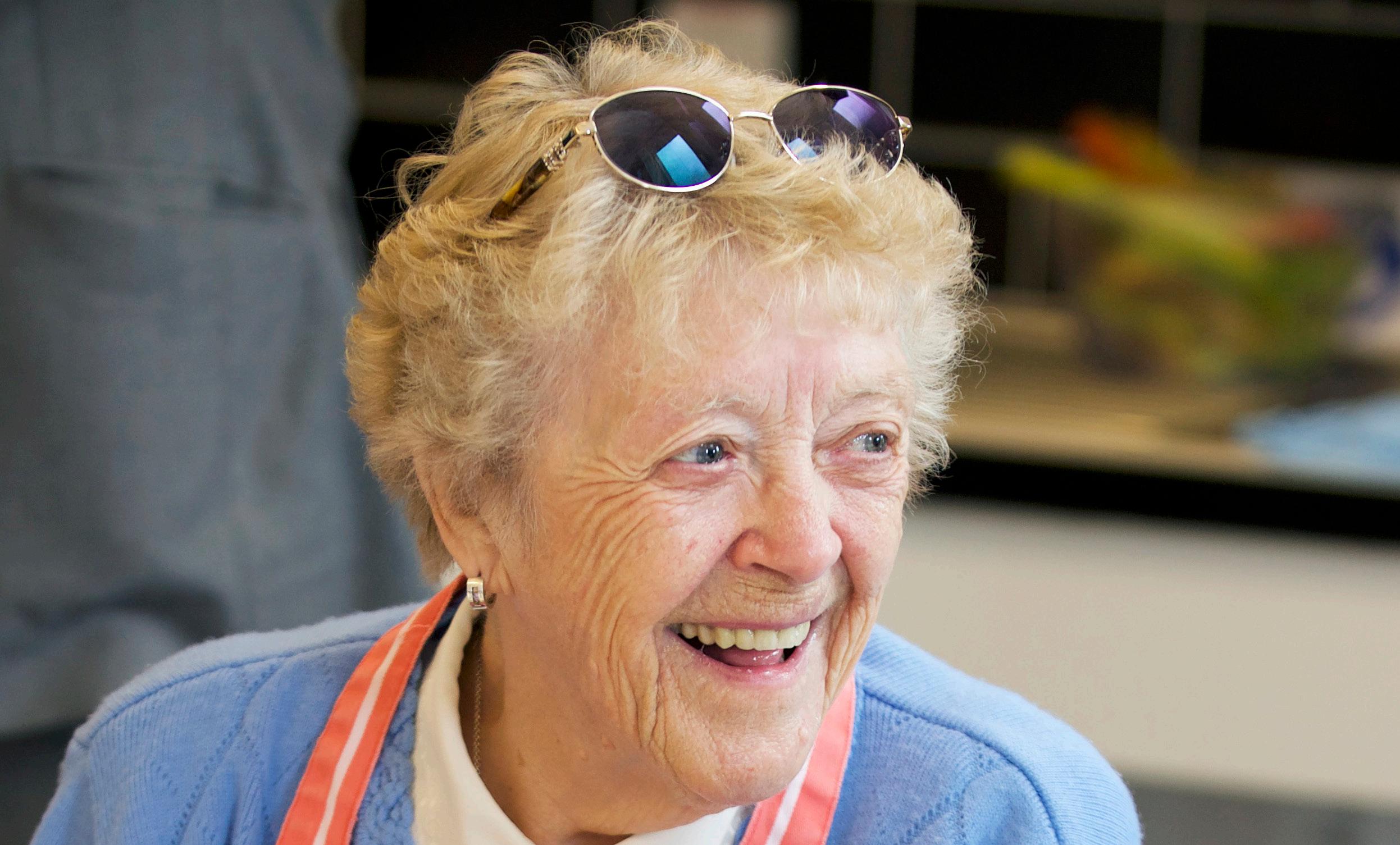
“It suddenly dawned on me that the man wasn’t really there. I was frightened to speak to anybody about it because I didn’t know about Charles Bonnet Syndrome.” Being able to identify the visions as a common condition was a watershed moment, Marjorie said. “When I learned about Charles Bonnet Syndrome, it really made a difference to me to know that I wasn’t going daft. I think the first time I really spoke about it was with my Sight Scotland Veterans Rehabilitation Officer.” Our Rehabilitation team invited six veterans to take part in a trial telephone support group in February 2021. The team partnered with a charity called Esme’s Umbrella that specialises in Charles Bonnet Syndrome.
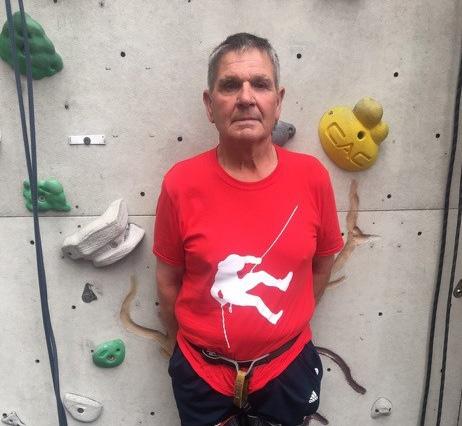
Veteran John Baptie also experiences Charles Bonnet Syndrome Veterans shared their experiences of the syndrome over the calls, which were held twice a week for four weeks. Participants discussed coping strategies that had worked for them in the past. Marjorie said: “Until the Esme’s Umbrella sessions, I didn’t realise so many others were suffering with it and how it varies for each person. Everybody sees something different. We built up quite a camaraderie in the group. It was nice talking to people who had found ways of dealing with it.” The trial group was rated highly by participants, so the Rehabilitation team continued setting up more telephone support groups to help ensure every veteran who experiences the syndrome can talk to peers about it.
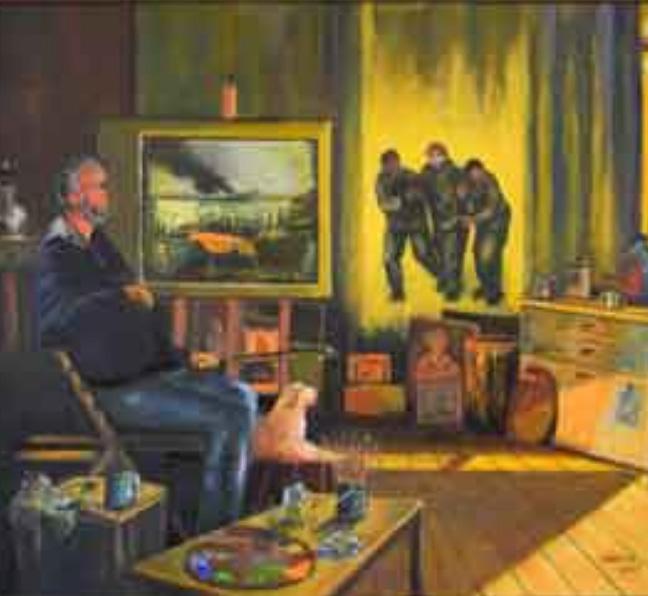
An artist’s self-portrait of themselves, with a depiction of the figures they sometimes see, due to Charles Bonnet Syndrome, in the background.
Supported to continue hobbies during lockdown
Peter Walker, aged 89, said the support he received during lockdown from Sight Scotland Veterans gave him ‘a new lease of life’. Peter served in the RAF for 22 years. His steady deterioration of sight in recent years had made reading extremely difficult, stealing away one of his favourite pastimes – studying old texts. However, thanks to our Rehabilitation team’s provision of a video magnifier – a Vario Digital FHD – Peter was able to read independently again. Peter said: “The video magnifier has changed my life. The old books I study have tiny print, but I just slide them underneath this beautiful machine and I can get back to reading my favourite books again. “The support and equipment has given me a new lease of life and independence.” Peter Walker

Veteran Bernard Matthews using a video magnifier
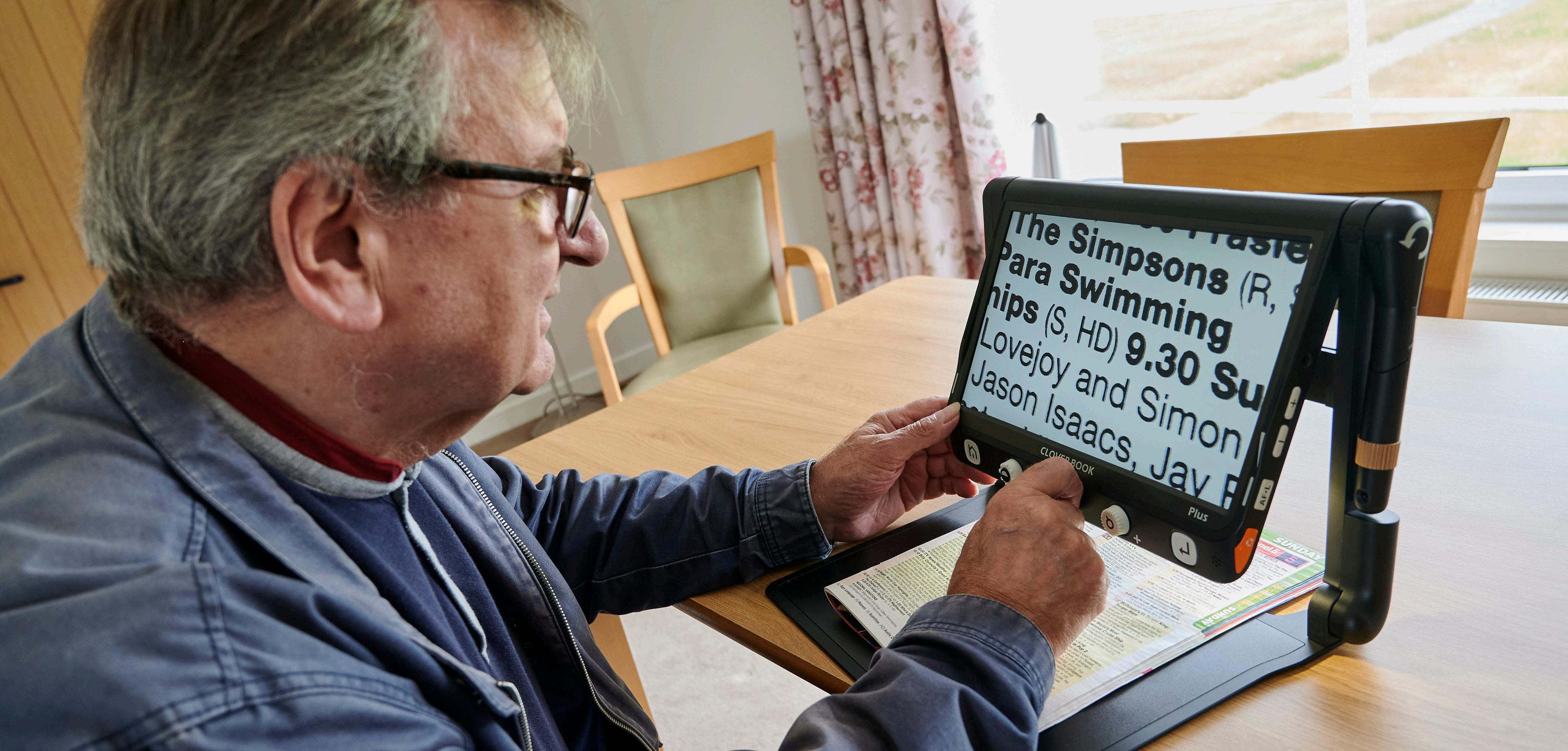
Veteran reclaims independence and favourite hobby
Glasgow veteran William McKinlay says the specialist support he received from Sight Scotland Veterans enabled him to reclaim his independence during lockdown. William, aged 69, began losing his sight 12 years ago. In 2020, his sight had deteriorated so much he found reading his favourite books extremely difficult. But thanks to specialist equipment, such as an ‘Explore 5’ digital magnifier and the rehabilitation support provided by Sight Scotland Veterans during lockdown, William was able to continue reading the military history books he loves. William said: “I hadn’t had any support with my sight loss prior to getting in touch with Sight Scotland Veterans at the end of 2019. I was really needing help to read. “That’s when one of Sight Scotland Veterans’ Rehabilitation Officers, Katrina Campbell, stepped in. The amount of help the digital magnifier that she provided me with has given me to be able to read independently again is brilliant. It’s definitely kept me busy during lockdown by allowing me to do my military research again and prepare for future school sessions. “The charity’s support has given me that independence back. Katrina also provided me with a talking clock and talking watch, which is very helpful when I’m cooking, and I now have a liquid level indicator for making cups of tea to stop overfilling the cup. The help and equipment that I’ve had has been absolutely fantastic – I’d be struggling without it.” William said Sight Scotland Veterans had been hugely supportive during the lockdown. “It feels like Sight Scotland Veterans is watching our backs with these phone calls and the support, even in lockdown. The camaraderie and friendship is there and if you’re stuck, somebody will help. That’s just the way the community is.”

William McKinlay










